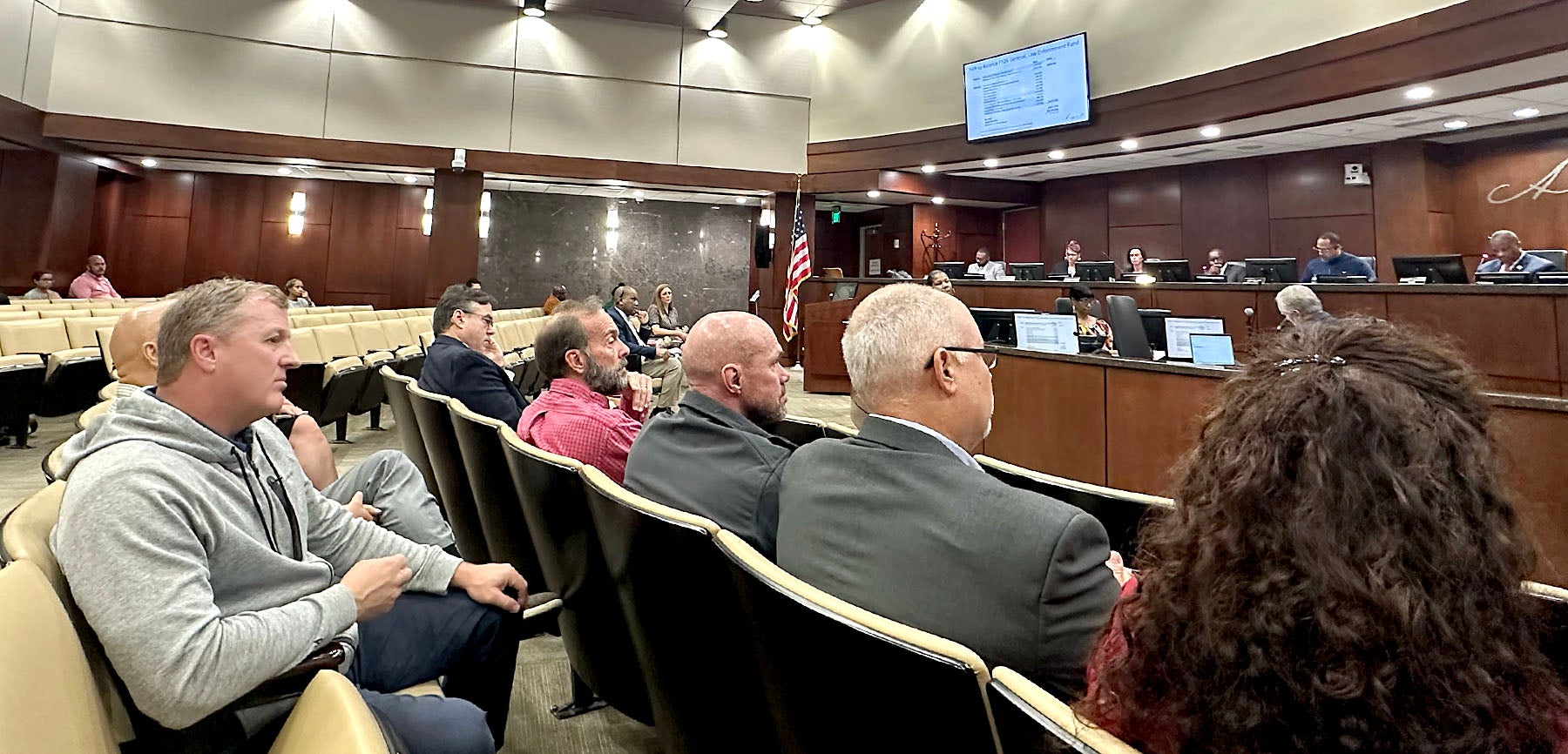Augusta commissioners went rounds for hours Tuesday about how to balance next year’s budget, and a tax increase, budget cuts and layoffs are likely.
Unable to agree on the details, however, the commission voted to again postpone the decision.
The 2026 budget presented by Administrator Tameka Allen reflected a $21 million shortfall, including $11.6 million in the general fund and $9.5 million in the Richmond County Sheriff’s Office budget.
Allen initially recommended a two-mill property tax increase that would raise about $16 million, but commissioners showed little appetite for raising taxes. Later, she proposed an increase dedicated to law enforcement.
On Tuesday, Allen offered a smaller option: a .85 mill increase with an estimated $6.8 million directed to the sheriff’s office, whose budget was expanded last year. Votes on the increase failed Tuesday.
The millage — or mill rate, applied per $1,000 of taxable property value — determines how much residents owe. Roughly two-thirds of property tax bills go to schools which are set by the Richmond County Board of Education, not the commission.
Allen warned that without new revenue the deficit cannot be closed with cuts alone. The city has used temporary funding sources such as pandemic relief to balance recent budgets, a practice she said cannot continue.
The shortfall is so deep “you are not going to be able to cut your way out of this,” Allen told commissioners.
Cuts and freeze advance, questions remain
While commissioners could not agree on a millage increase Tuesday, they did reach consensus on a few cost-cutting measures:
- They removed from consideration a proposed 2% excise tax on energy used in manufacturing.
- The commission scaled back a proposed $3 million 3% cost-of-living adjustment for employees to a 1% increase.
- They approved a six-month hiring freeze. The reduction is expected to save about $2 million.
- The commission approved 5% department cuts. Allen said the cuts will eliminate jobs in some areas.
- Augusta Transit has been cut $594,000, removing a second bus on two routes. A previous plan to eliminate Saturday service was dropped. Members of the Augusta Public Transit Citizens Advisory Committee spoke at the meeting.
- They approved reducing city contributions to outside agencies by $864,860.
Only two commissioners — Brandon Garrett and Tina Slendak — supported a package that paired the cuts with the .85-mill tax increase. A separate proposal to raise taxes by one mill but send less to the sheriff also failed.
Earlier in the day, commissioners approved a 6.5% increase in water and sewer rates projected to generate around $8 million. Utilities Director Wes Byne said the hike will help “build a capital cushion” and allow the system to continue recovering from hurricane damage.
Manufacturers push back on energy tax
The 10 a.m. budget session drew representatives from Augusta’s largest manufacturers — EZ-Go, Aurubis, Clearwater Paper, U.S. Battery, Smurfit Westrock, Starbucks, Macuch Steel and Prayon Inc. — who stood in opposition to the 2% energy excise tax proposed as a help for the city’s budget gap.
Clay Jones, vice president of the Georgia Association of Manufacturers, said the perception of factory work as blue-collar labor is inaccurate. The sector employs more than 8,000 workers locally with an average wage of $75,000 and is “not something we should gamble,” he said, noting that average earnings for the area exceed those in healthcare.
The energy tax option was created by state law in the early 2010s when the legislature exempted manufacturing energy from state taxation. Counties including Chatham, Columbia, DeKalb, Forsyth and Gwinnett have adopted it.
What’s next?
Augusta’s decision now turns on what mix of millage increases and cuts the commission can accept. For the second time in two weeks, they recessed their regular meeting, rather than adjourning, and left without an answer. The body will reconvene at 9 a.m. Tuesday.










